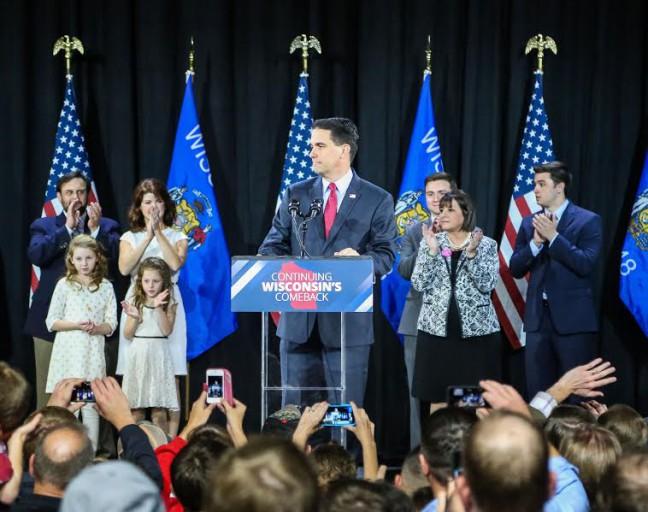Gov. Scott Walker’s biennial budget proposal would include cuts to the Department of Natural Resources and structural changes that has environmental advocates concerned.
The cuts would lead to 66 positions cut from the department, 18.4 of which would come from its science bureau.
Walker also proposed a moratorium on public land purchases until the program has $1 or less of debt for every $8 of property it owns, which is projected to take until 2028.
The Knowles-Nelson Stewardship program began in 1989 and has been the state’s largest legislative contributor of land reserved for conservation, according to the DNR’s website.
Initially, the program was set up to allocate grants to non-profit conservation and land-trust groups over a period of one decade.
Sen. Tom Tiffany, R-Hazelhurst, said the land purchases made under the stewardship program are bonded, or borrowed.
“In other words, it’s put on the state’s credit card,” Tiffany said.
In addition to bonds, Tiffany said local governments are not required to pay property taxes on the property, so the state is burdened with “payments in lieu of taxes” payments.
“As a member of the Joint Finance Committee, I believe it’s appropriate that we are having this moratorium, that we take a pause in buying more land via the stewardship program until we can get that debt under control,” Tiffany said.
But the change alarmed supporters of the stewardship program such as Gathering Waters, also called the Wisconsin Alliance for Land Trust, that benefit from the program’s grants.
The state’s $12 billion outdoor recreation industry and $20 billion forestry industry directly benefit from land obtained through the stewardship program, Gathering Waters spokesperson Mike Carlson said.
He named the ongoing expansion of the Ice Age Trail, one of only eight National Scenic Trails, as something that could be put to a halt under the new legislation if Walker’s current proposal passes. The Ice Age Trail attracts about a million tourists on a yearly basis, which helps the local businesses and economies, Carlson said.
Another provision of Walker’s proposal would remove policy-setting power of the seven-citizen Natural Resource Board, and instead makes it an advisory group to the DNR secretary, whom the governor appoints.
The board used to make hiring decisions for DNR secretary until former Gov. Tommy Thompson made it a cabinet position, according to George Meyer, who was the first DNR secretary to be governor-appointed and held the position from 1993 to 2001.
Each month, the NRB holds a public session on any kind of management plans, land purchasing or environmental regulatory decisions, Meyer said. Meyer, who is now the executive director at the Wisconsin Wildlife Federation, said the board gives citizens “direct access” to policymaking that is not possible if power is shifted to the secretary.
The board also allows citizens to bring up any concerns about agency operations as an oversight authority measure, he added.
“So, for one, the secretary could ignore whatever is done, and advisory boards have no requirement for these monthly meetings,” Meyer said. “You would find far less talented individuals serving on the advisory commission.”
Tiffany said his main concern comes from the fact that this is an unelected board.
“I believe the citizens should have the ability to vote for the people who make laws,” he said. “The citizen do not vote for the individuals on the Natural Resources Board. Those are all governor-appointed. I’ve always been opposed to any lawmaking agency that is not citizen-elected.”
Walker’s budget proposal now sits in the state Legislature’s Joint Finance Committee, which will make revisions in the coming weeks before sending it to the full Legislature.














